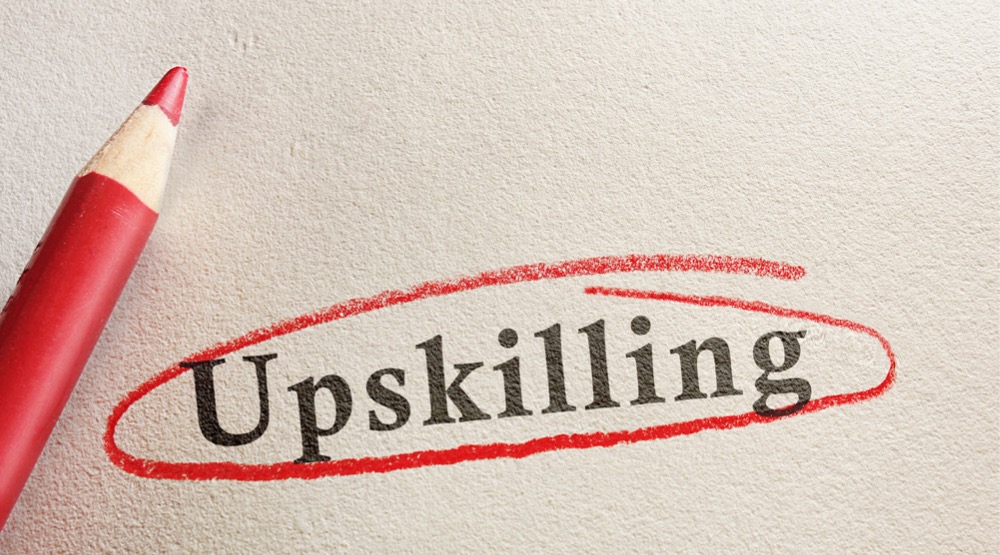How important is education to you and your team?
It is essential to keep up to date with the latest evidence-based procedures in order for us to deliver the highest quality of education to our students. Being up to date with the latest, cutting-edge technologies allows us to equip students with the skills and knowledge required by industry to be ready to take on the many opportunities available to them. Unfortunately, there is so much unregulated information available on the internet today so receiving education through nationally accredited, and industry connected courses is more important than ever for the confidence and safety of clients and therapists. In addition to obtaining a formal, recognised qualification, AACDS promote the continued education of those practicing in our industry. To support this, AACDS established Aesthetics CPD which is an initiative providing ongoing education for continuous professional development to our graduates and other aesthetic professionals through partnering up with clinical equipment companies and industry leaders. This is ideal for those who may not be able to attend conferences due to time restraints and cost.
During the pandemic how did you alter your education for staff and clients?
During the pandemic, we introduced Microsoft Teams Support Groups for the units delivered throughout our courses. Since all professional development events and face-to-face trainings were cancelled, we organised theory delivery via webinars and invited guest speakers to deliver these sessions. We also utilised Microsoft Teams and Zoom which allowed us to host weekly support sessions for students providing an opportunity to check on their progress and ensuring that even during lockdown they never felt isolated.
The delivery methods used in our courses were improved to make them more interactive to increase engagement and keep our students motivated throughout lockdown. We achieved this by developing online tutorials, implementing discussion forums and Q and A sessions, whilst also holding numerous one-on- one sessions via video conferencing. We also invited industry leaders to host live webinars for us on special interest topics in aesthetic medicine and this was very well received by our students. In addition to this, we also introduced an educational video series of advanced injectable demonstrations delivered by cosmetic medical professionals to keep students motivated during lockdown.

Tell us how it has changed to be an educator going forward?
The pandemic has certainly brought change to the delivery of education. Educators now need to be competent and confident in online delivery. The future of education is about effectively utilising technology to deliver expert content in an engaging manner. Monitoring student progress and engagement is critical with online delivery methods as you deal with different learner styles while maintaining quality and standard of student work.
Instant feedback to students through facilitated one-on-one chats, small support groups to build and maintains student rapport is essential for student success. Moving forward, it will be imperative for educators to view technology and content as equally important.
What are some of the educator plans you have put in place for the year ahead?
We will continue to hold the fortnightly Microsoft Teams Support Groups for each of our units which are run by our Unit Coordinators for students. We will also be starting a podcast channel in 2021 which will be an interview platform for leaders in the aesthetic industry. We also are excited to be launching virtual CPD events which allows us to encourage people from all over Australia to attend to keep up their professional development from the comfort of their own homes. This will be in addition to the quarterly face-to-face CPD events showcasing the industry leaders and latest technologies in VIC, NSW and WA. In addition, we will also be adding to our educational video series to provide additional advanced and complex treatment techniques to our current and past graduates.
Has online/tutorial educating become more important now and how does it replace the face-to-face educating?
Certainly, they both have their place. Online educating allows unmatched flexibility and student accessibility, but it also needs to go beyond that to compensate for its “human factor” limitations, such as being able to instantly gauge engagement and to some extent relationship development. To compensate for this, AACDS builds relationships among student cohorts, lecturers and industry via our Teams support sessions.
Hands-on practical training can never be replaced in our industry and will continue to be a key element in achieving competency in new skills. Therefore, the importance of face- to-face training will remain essential, however we will see it more readily interspersed with online content to provide a well-rounded opportunity for learners.
Any educator advice for the year ahead when it comes to innovative ways to make sure business stays ahead of the game?
Definitely start preparing for a post pandemic future as this is going to include requirements to be more innovative and resilient than before. Investing in social media training for staff, integrating add to cart for sales to boost clinic revenue would be key to ensure you stay competitive. My advice to businesses would be to have their staff attend Continuing Professional Development (CPD) events in order to keep up their currency. Clinics should also encourage their staff to look for courses with units of competency which can be studied as a stand-alone course but then build towards achieving a nationally accredited qualification. AACDS have also introduced Professional Certificates which encourage learners to upskill with flexible self-directed learning activities, not just in clinical training but also marketing and management of the cosmetic clinic which is a very useful skill set for staff wanting to move into a managerial position. Businesses must also ensure that their staff is aware of what their occupational health and safety requirements are and have protocols in place to reduce business risk.
This article first appeared in the January/February issue of Professional Beauty magazine. Download the issue here.
For more news and updates, subscribe to our weekly newsletter

